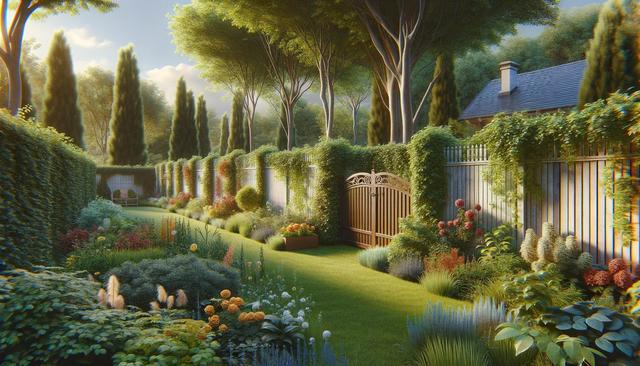Understanding the Purpose of a Garden Fence
Before selecting a fence for your garden, it’s important to understand what you need it for. Garden fences serve multiple purposes, including privacy, protection from animals, and visual enhancement. For some, a fence is primarily a boundary marker, while for others, it’s a way to create a safe space for children or pets. Knowing your priorities will help narrow down the right option among the various types of fences available today.
Different purposes may require different materials and heights. For example, a decorative fence might only be a few feet high and made of wood or lattice, while a security fence may be taller and constructed from metal or composite material. Some common reasons people install garden fences include:
- Keeping pets or small children safely enclosed
- Preventing wildlife from entering the garden
- Adding visual structure or design to the landscape
- Enhancing property privacy and security
By identifying your primary goal, you can better determine which features are essential in a garden fence.
Exploring Different Types of Fences
There are numerous types of fences suited for garden use, each with its own advantages. The choice often depends on budget, style, maintenance preferences, and functionality. Among the popular types of fences are:
- Wooden fences – Traditional and visually appealing, though they may require regular maintenance.
- Vinyl fences – Durable and low-maintenance, but often more expensive upfront.
- Metal fences – Include iron or aluminum options, known for strength and longevity.
- Bamboo and natural material fences – Eco-friendly and ideal for a more organic look.
- Chain link fences – Practical and affordable, though less aesthetically pleasing.
Each of these types of fences varies in terms of installation complexity, cost, and longevity. It’s important to evaluate how each type aligns with your garden’s needs and your long-term plans for your outdoor space.
Budgeting and Payment Flexibility
Cost is a significant factor when choosing a fence. Fortunately, many providers now offer fences payment on instalments, making it easier for homeowners to manage the expense. These payment plans can be particularly beneficial for families or individuals on fixed incomes, allowing them to invest in quality fencing without financial strain.
When budgeting for your fence, consider both the initial cost and long-term expenses. Maintenance, repairs, and potential replacements should all be factored into your decision. Payment plans may differ in terms, so it’s helpful to ask about:
- Interest rates
- Duration of the payment plan
- Upfront costs or deposit requirements
- Flexibility of monthly payments
These options help make garden improvements more accessible for a wider range of homeowners, especially those looking for quality without compromising financial stability.
Affordable Fences for Senior Homeowners
For seniors, especially those on retirement incomes, finding affordable fences for senior households can make a significant difference in maintaining a safe and enjoyable garden environment. Fencing options that require minimal upkeep and offer easy installation are often ideal.
Some recommended features for seniors include:
- Low-maintenance materials like vinyl or composite
- Simple locking mechanisms for gates
- Moderate height for visibility and security
- Durable construction to minimize the need for repairs
In addition, many suppliers offer tailored solutions for senior homeowners, including discounted rates or customized payment options. These make it easier to enhance garden spaces while remaining within budget constraints and physical capabilities.
Installation and Maintenance Tips
Proper installation ensures your fence lasts longer and functions as intended. Depending on the type of fence, you may opt for professional installation or a DIY approach. While hiring professionals adds to the cost, it can save time and ensure compliance with local regulations, especially concerning property lines and height restrictions.
For those handling installation independently, here are a few tips:
- Check local zoning laws and neighborhood guidelines
- Measure your garden accurately before purchasing materials
- Use weather-resistant coatings to extend the life of wooden fences
- Secure all posts firmly to prevent leaning or collapse
Maintenance is equally important. Inspect your fence regularly for signs of wear, such as rust, rot, or loose panels. Simple upkeep can prevent more costly repairs down the line and ensure your garden remains a welcoming and safe place year-round.




Leave a Reply